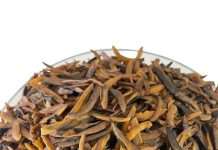Although eating tomatoes-rich diet is a tall order presently for the man on the street in any city in Nigeria, as its prices keep skyrocketing by the day, but studies have continued to affirm the effectiveness of the lycopene-rich vegetable, in the prevention of various cancers.
Previous studies have identified tomato extract as a preventive agent of stomach cancer, and other diseases. The new research by Tatiana Oberyszyn, a professor of pathology at The Ohio State University in Columbus, co-author Jessica Cooperstone, a research scientist in the Department of Food Science and Technology in the College of Food, Agricultural, and Environmental Sciences at the university, and their colleagues. Their findings were published in the journal Scientific Reports.

The study which found that adequate consumption of tomatoes reduced risk of developing skin cancer by half in mice highlighted how nutritional interventions may modify the risk for skin cancers.
Stressing the essence of eating whole tomato than the processed form, other researchers have indicated that lycopene intake from eating a tomato in its whole food form is more effective at preventing sunburn than lycopene administered from a synthesized supplement. This suggests that other compounds in tomatoes may contribute to the overall effect.
In a Medical News Today report on the findings, Ultraviolet (UV) ray was identified as a major culprit of skin cancer, and the scientists were poised to establish whether consuming the tangerine or red variety of tomatoes would significantly reduce skin cancer tumours in male and female mice that had been chronically exposed to UV light.
However, the team found that when male mice were fed a 10 percent tomato powder diet every day for 35 weeks and then exposed to UV light, they experienced a 50 percent reduction in skin cancer tumours when compared with the control group of mice that were fed no tomato. Whereas there was no significant difference in the number of tumours identified in the female mice.
Differences noted between the male and female mice could be explained by previous studies that reported that male mice develop tumours quicker after UV exposure than female mice, and their tumours are larger, more aggressive, and more abundant.
The import of the study to researchers is that gender consideration is crucial in exploring different preventive strategies. Prof. Oberyszyn. “What works in men may not always work equally well in women and vice versa.”












Good info and straight to the point. I don’t know if this is really the best place to ask but do you people have any thoughts on where to employ some professional writers? Thx 🙂